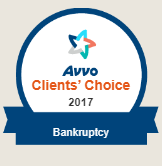Many people do not file for bankruptcy when it would benefit them to do so because of the negative stigma attached to it. Despite what you may have heard, bankruptcy does not mean that you have to sell off all your assets, nor does it ruin your credit forever.
For some people, bankruptcy is a reasonable and viable solution to intractable debt. However, it may not be the right solution for your situation. To determine whether filing for bankruptcy would be of benefit to you, ask yourself the following questions:
1. Are you subject to garnishment?
Creditors may garnish your bank accounts and/or wages from your job. Filing for bankruptcy puts a stop to garnishments by putting an automatic stay into effect. This also stops all attempts by creditors to contact you. You do not need to wait for the bankruptcy court’s approval; the automatic stay goes into effect immediately upon filing.
2. Can bankruptcy discharge your debts?
There are certain types of debts that bankruptcy does not affect. These include home mortgages and other secured debts. However, bankruptcy can discharge unsecured debts, such as medical bills, payday loans and credit card debt. It is important to determine whether bankruptcy can discharge the debts you owe because that affects the answer to the next question.
3. Do the benefits of bankruptcy outweigh the costs?
There are legal fees involved with filing for bankruptcy, which can amount to more than $5,000. There is also a negative impact on your credit score for at least two years and increased insurance rates. If the debt that you stand to discharge exceeds this amount, then bankruptcy may be a good solution. If not, then you may first need to consider other options.
If you could feasibly pay off your debts within two years, then bankruptcy may not be the best solution. If not, however, it is something to seriously consider.



